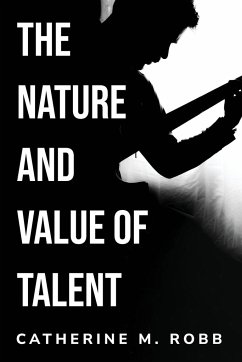Talents play a central role in the way that we live our lives, and it is widely assumed that identifying and developing one's talents is valuable, both for oneself and for others. Despite this, the philosophical literature is seriously lacking in its discussion of the nature and value of talent; the objective goodness of talent and its development is often assumed without an analysis of what a talent is, and the value that we place on it. This dissertation aims to provide such an analysis, offering a philosophical account of the nature and value of talent, and an account of why we value its development. In doing so, I demonstrate how this can inform and help us assess the debates and arguments that are made in the existing philosophical literature on talent. I do not aim to provide an exhaustive overview of all the philosophical issues that could be raised in relation to the value of talent and talent development, but instead I focus on three central issues that arise when analysing the nature of talents and the role that they play in our lives. The first issue is the nature of talent itself. Here I offer an account of talent, understood as a high level of potential for a particular skill which is expressed and manifested in the excellent acquisition of that skill. The second issue is whether or not we have good prudential reasons or a moral obligation to develop our talents. I begin by objecting to Kant's claim that there is a moral duty to develop one's talents; I will argue that if there is such a duty, it will not be generated by the commitments of Kant's moral theory. I then argue that whether or not talent development is morally required, or prudentially good, is conditional on one's endorsement of the commitments that are required to bring about the development of one's talent.







